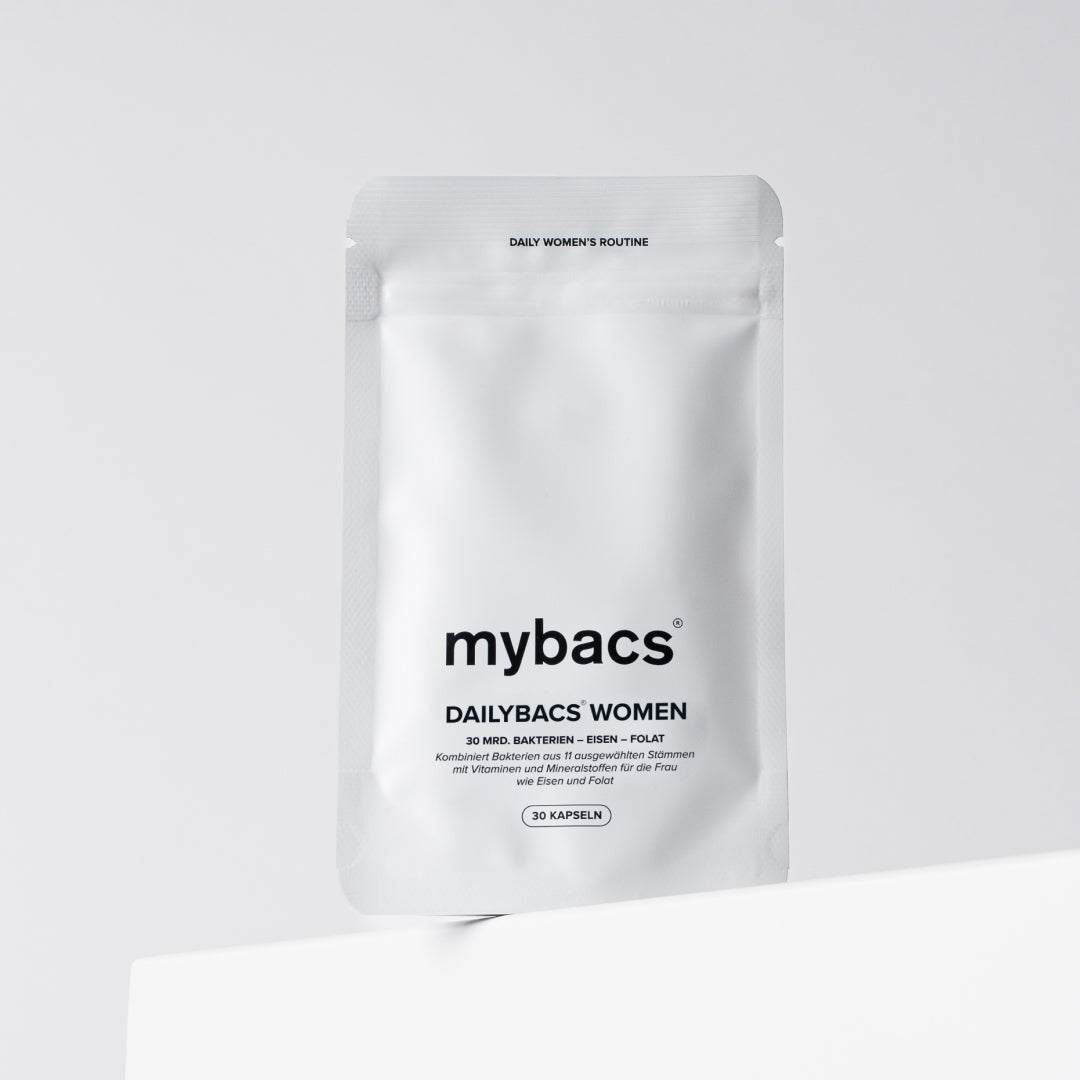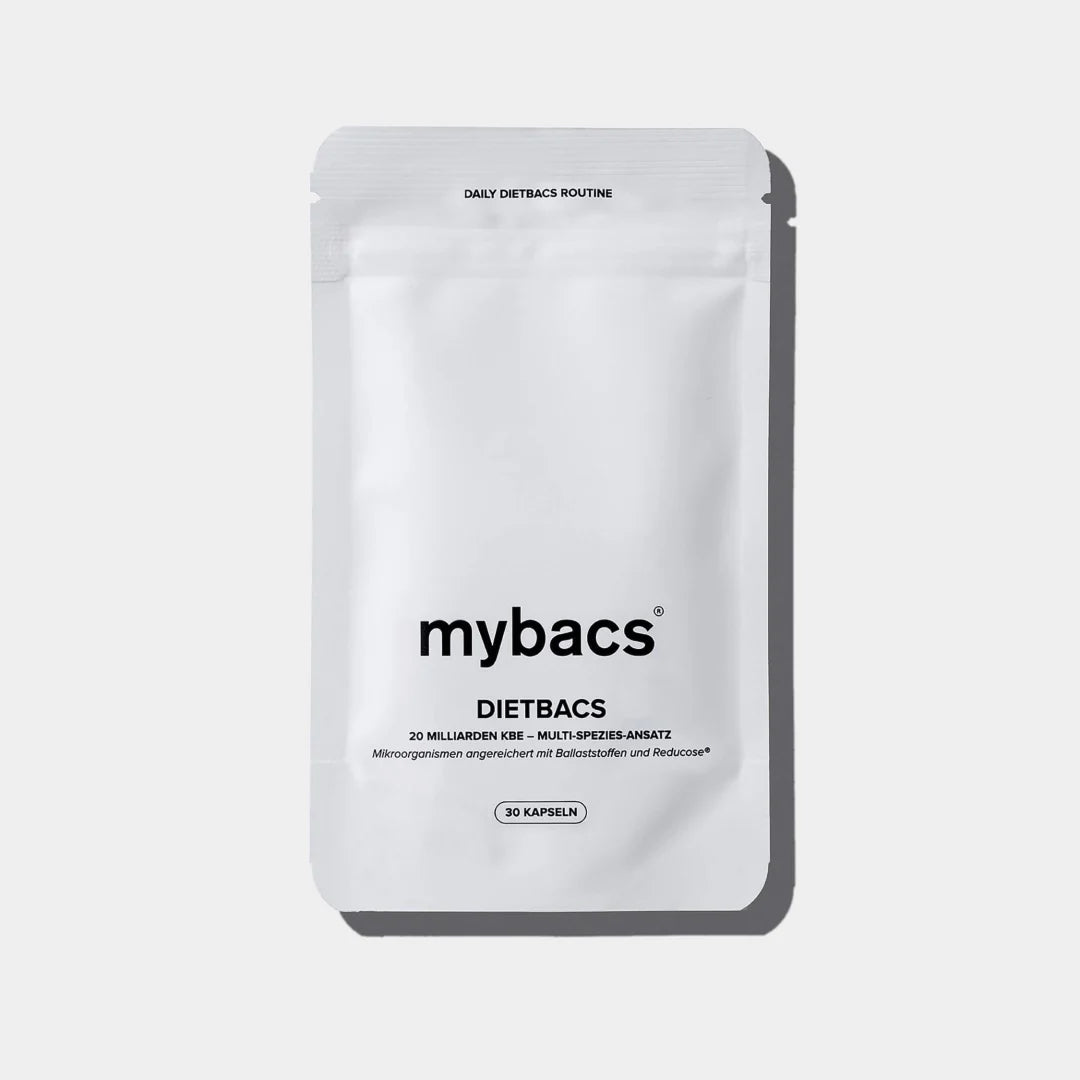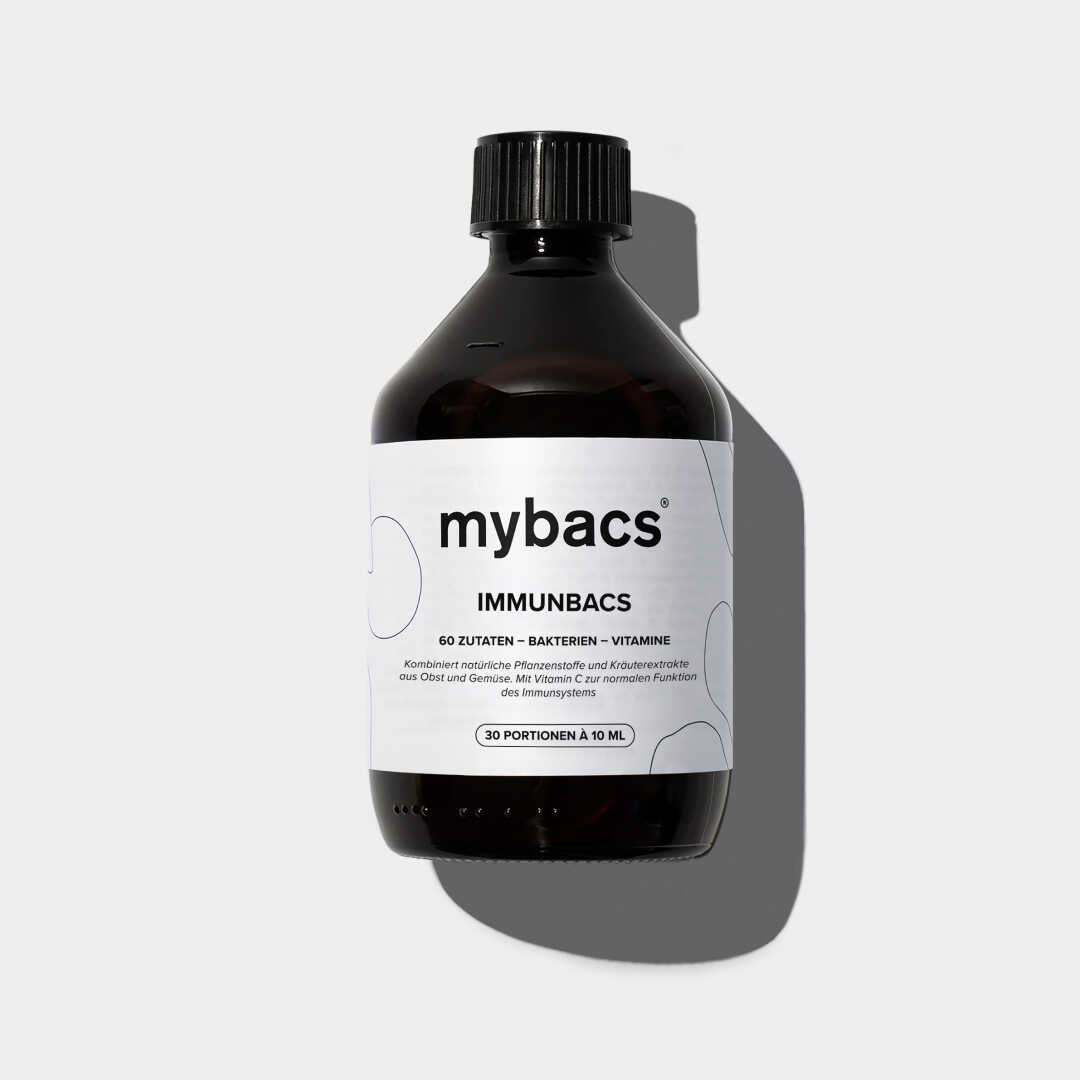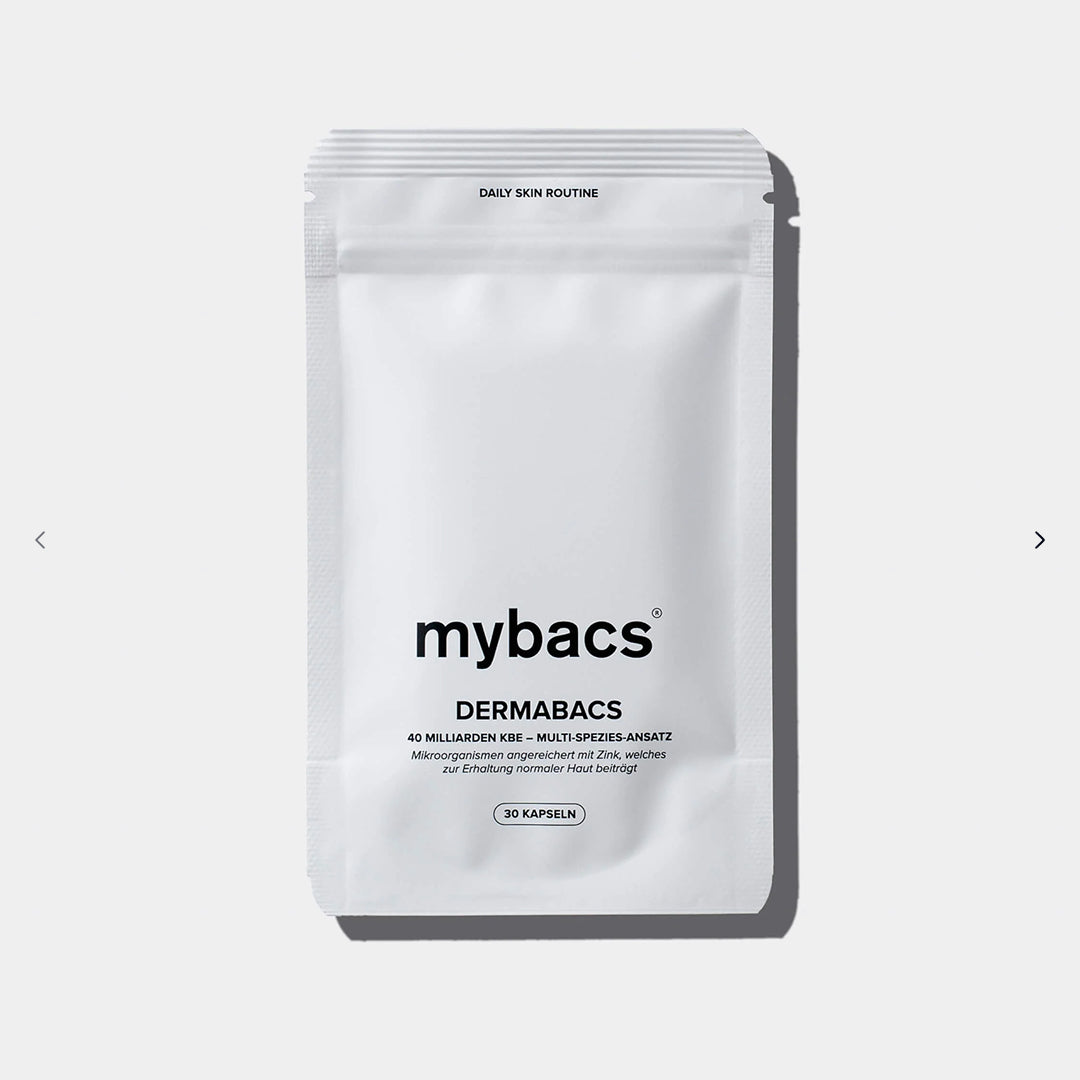Did you know that your intestines and your skin are connected by a very special connection? This is called the gut-skin axis. Our doctor Dr. Adrian Weingart will explain what this is all about and why people with inflammatory skin diseases should be particularly careful here.
We have already told you a lot about the gut-brain axis , but scientific findings show that there is another important connection from the gut. The skin is also strongly connected to the gut, so experts also speak of a gut-skin axis. Although the gut and the skin are relatively far apart, a connection can be made, for example, between common inflammatory skin diseases and an imbalanced gut flora.
gut microbiome and skin microbiome
When we at mybacs talk about the “ microbiome ”, we usually mean the human gut. There are over 1,000 (!) different types of microbes there, making it the largest number of microbes in our body. But there are actually many other microbiomes in and on us. One of these is the skin microbiome. After the gut, there is the second highest number and variety of microorganisms there. We know that the gut microbiome is essential for our immune system and our digestion. But why do we have a microbiome on our skin?
Quite simply: our skin microbiome is our protective shield! In short, human skin is the body's first line of defense. It forms a physical and chemical barrier against the penetration of foreign substances or microorganisms and has an immune system that helps fight off infections. This happens, among other things, through the symbiosis of bacteria. The connection between our gut and skin microbiome is so close that the skin can be called the "mirror of the gut" - it essentially shows how "healthy" we are on the inside.
What are the most common signs that the skin microbiome is no longer in balance?
There is no clear sign here. Rather, a disturbed skin microbiome can influence many skin diseases, which then manifest themselves in different ways. Our skin is populated by countless microorganisms that usually live in peaceful coexistence. The totality of bacteria, viruses, fungi and mites is referred to as the microbiome. In some skin diseases, this balance can be disturbed, causing inflammation and eczema to flare up. For example, in acne, there are more so-called Cutibaterium acnes, in rosacea more Demodex mites and in atopic dermatitis Staphyloccus aureus compared to people with healthy skin. More and more studies indicate that people with acne and rosacea have a reduced diversity of their intestinal species. Thus, certain species predominate and others are missing. This can trigger inflammatory processes.
What can be done about it?
Targeted therapy can be initiated, for example, through external treatment with prescription creams. Depending on the severity, a dermatologist should be consulted for this. In addition, your daily lifestyle can be crucial. When it comes to skin care, "more is better" does not always apply. Every day I experience that people with skin imperfections often have an overly complex cleansing and care routine. Returning to three products can help the skin to regenerate and find its balance again:
- Gentle cleansing in the morning and evening (no rough peelings to avoid micro-injuries to the skin),
- Skin care (fragrance-free care after washing your face),
- Sun protection (in the morning). Skin care should be tailored to the individual skin type. Consultation with a dermatologist and/or medical cosmetician is also recommended.
According to the latest findings, the skin and intestines seem to be more closely connected than was assumed a few years ago. Our daily diet is considered to be an important factor influencing the intestinal microbiome. Clinical studies are currently investigating whether dietary influences on the intestinal microbiome can have positive effects on the skin. What can already be said is that a varied diet characterized by seasonal, unprocessed, plant-based staple foods appears to be beneficial to (skin) health. Probiotics and prebiotics are particularly interesting.
So is the holistic approach important?
It is the combination of inside and outside that delivers the best results, taking into account sleep, diet, the amount of exercise and additional stress. If you are looking for inspiration for healthy recipes, then take a look at our recipe blog ! The gut-skin connection also works the other way round in a positive direction: Studies have shown that a healthy gut flora ensures that the fatty acid profile of the skin is healthier, i.e. the skin retains more moisture and can thus strengthen the protective barrier. Further research shows how similar the gut and skin microbiome are: It suggests that health is strongly dependent on the diversity of bacteria in both flora. The good news: You can have a direct influence on the gut flora, even with natural means. Probiotics in combination with prebiotics have been shown to have a positive effect on the diversity of bacteria in the gut microbiome.
The Dermabacs® - Probiotics for Acne & Skin Impurities, Rosacea and Neurodermatitis
Our new synbiotic line Dermabacs® is based on the findings of the latest microbiome science. The bacterial strains contained have been tested in clinical studies for their effectiveness against acne, rosacea and atopic dermatitis (neurodermatitis) (see below). It also contains 10 mg of zinc, which strengthens the immune system, reduces redness, inflammation and irritation and reduces sebum production. Zinc has been proven to help with acne, neurodermatitis and other inflammatory skin diseases and psoriasis.
In summary , it can be said that the intestine and skin communicate with each other via their microbiome. If certain types of bacteria predominate or are completely missing, inflammatory processes can be triggered. The latest studies in microbiome research and nutritional science indicate that certain foods can have a positive effect on the skin. These include omega-3 fatty acids and probiotics. Would you like to test our Dermabacs® to support your skin and intestinal microbiome?






